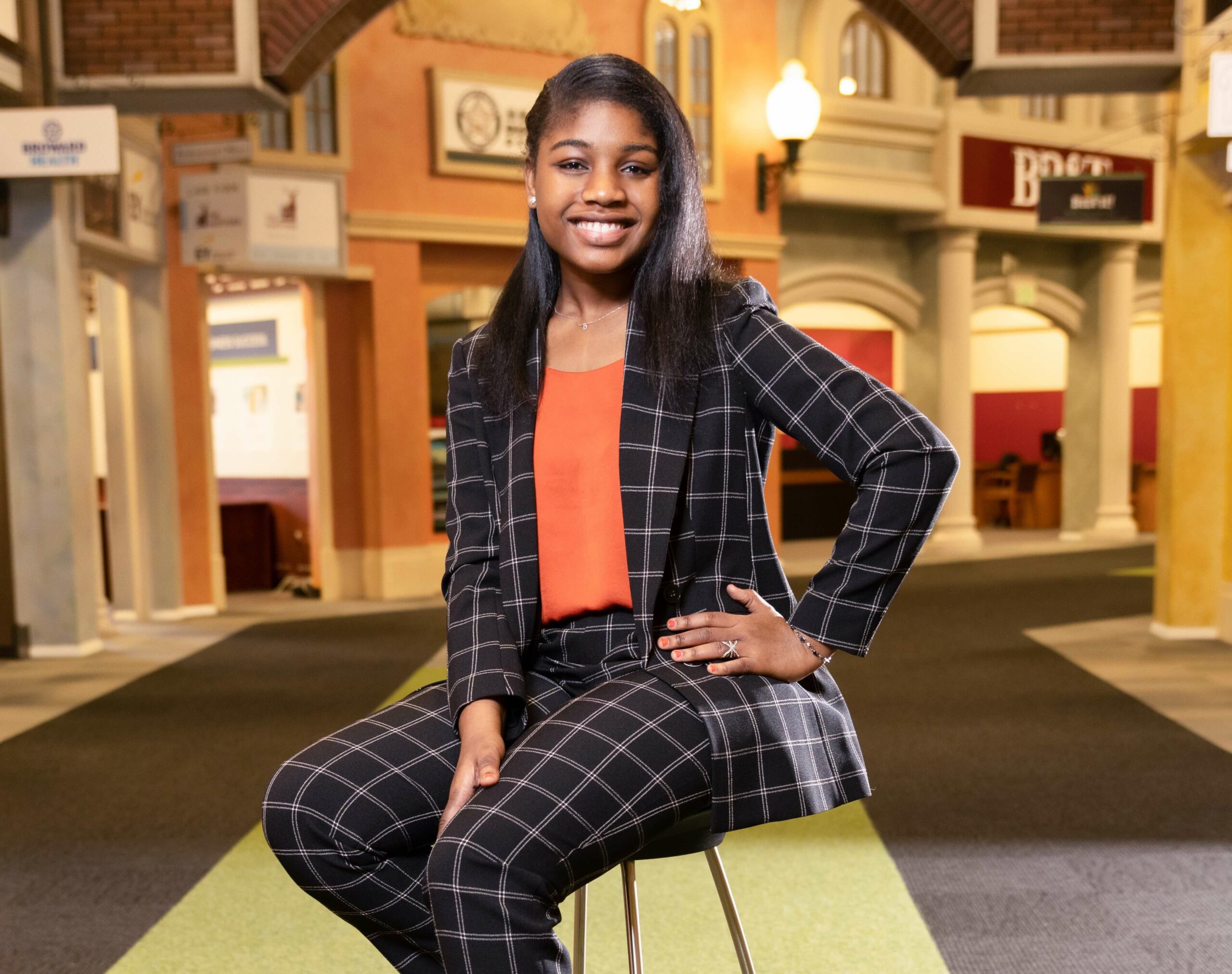“I am a social person,” says high school senior Huguette St Hubert, with her characteristic directness. She recalls feeling “emotionally drained” when the COVID-19 pandemic hit and it became clear to her that her social network, other than her family, was threatening to dry up along with the educational camaraderie she so prizes.
Born in Haiti and now 18, St Hubert emigrated to the United States at 13 to live with her father—and for the educational opportunities—in Fort Lauderdale. She graduated Lauderdale Lakes Middle School without a hitch, but it’s safe to say that St Hubert’s senior year at Fort Lauderdale’s Stranahan High School required some adjustments.
Ironically, the most “normal” thing about the last year has revolved around what is arguably the most stressful aspect of a typical senior year: the age-old question of which college to choose. (She has narrowed it down to FAU and NSU).
But for St Hubert, Junior Achievement of South Florida—which empowers students through work readiness, entrepreneurship and financial literacy—has proven to be a life raft, both before and during the pandemic. The physical facility—at least pre-COVID—was a hub of activity, a simulation of a central business district: “It gives students a glimpse into the business world,” explains Keith Koenig, a longtime sponsor of Junior Achievement and the owner and CEO of City Furniture (his son Andrew serves as president).
“There are about 20 different businesses that are $50,000/year sponsors, and that’s important foundation funding. We each have a physical presence, a storefront, so students can role-play as bankers—or working for a furniture company.”
Before the pandemic struck, St Hubert had been making real headway in the development of her soft skills, a term that includes everything from leadership to teamwork to communication—basically, social and emotional intelligence. “Employers are reporting a huge gap in soft skills,” says Laurie Sallarulo, president and CEO of Junior Achievement of South Florida.
That’s where the organization’s Career Bound program comes in—the curriculum is skills-based (activities involving conflict resolution, for example); includes an industry day, in which time is spent learning about a particular sector; and culminates with the placement of a student in a paid summer job.
Sallarulo believes that investing in young people to help tackle skills shortages could at once help the region recover from the economic impacts of COVID; protect the economy from future pandemics and other disruptions; and combat intractable youth unemployment.
“Job-creation and training programs must address the immediate aftermath of the pandemic—and the systemic, long-term challenges faced by young people, especially young people of color,” she says.
Interviewing, networking, writing resumes and cover letters—those crucial first-impression tasks—can help turn an academically strong student such as St Hubert (who aspires to become a pediatrician) into a rock-star talent.
It was Junior Achievement that introduced St Hubert to the utility of soft skills, when she attended a presentation run by the organization. “In school we use soft skills all day, but we didn’t have a name for them,” St Hubert says. Junior Achievement provided that awareness—and even the pandemic couldn’t completely halt her soft skills education, which continued online. “My parents saw growth in my confidence and the way I spoke about my career path,” she says.
Steven Geller, the mayor of Broward County and an avid booster of Junior Achievement, is acutely aware of the lost year of socialization.
“There has been long-term disruption in 2020 and 2021 and possibly even into 2022,” he says. “Students may have attended their senior year in person, but if they missed their junior year and half of their sophomore year, they don’t just come back in and hit the ground running. They’ve missed the sports teams, the debate team, the journalism class, the marching band. All those activities are developmental for future success. So I’m anticipating problems and we need help from the school system, the Boys and Girls Clubs, and I’m particularly looking for help from J.A.”
Geller has put his money where his mouth is—he has been able to obtain funding for Junior Achievement through the county commission.
As for St Hubert, as she finishes her high school education, it’s clear that she has mastered the soft art of relationship-building. “As a BRACE Cadet, I do career advising,” she says. “In one-on-one sessions, I help my peers become college- and career-ready, and the students I’ve worked with have already applied to at least three Florida colleges.”
BRACE Cadets, though in high school, are bona fide leaders: They implement special projects in their schools to help equip their peers for college and careers and, in general, to succeed in life after high school.
Despite the pandemic, St Hubert has learned a crucial lesson: Sending the elevator back down to help others is the ultimate soft skill that results in solid achievements.














